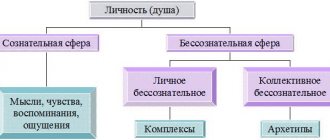Since elementary school, parents could not get enough of their son: capable, calm, balanced, polite, obedient. In communication - cheerful, cheerful, open. At school, I never had any problems with my studies or behavior. He was interested in chess. At home he always helped and was not rude. Even adolescence began relatively smoothly. He became more impulsive at some moments, but still kept himself under control.
But one morning he did not leave his room for breakfast. Gloomily he said that he did not want to go to school and would stay at home. His parents had never seen him so depressed and irritated. They started to find out what was going on, but he didn’t have a girlfriend, there was still a year before the exams, there were no conflicts with teachers or classmates. Every day he became more and more gloomy, did not want to talk to anyone, refused to eat or go out anywhere. A week later he was almost forcibly taken to a psychologist. With the help of testing, the reason for this behavior was identified - the cycloid (cyclothymic) type of character accentuation.
First about accentuations
Classifications of character accentuations were presented by A. E. Lichko and K. Leonhard. The typology of the first consisted of 11 personality types, each of which has special manifestations observed in adolescence. He also identified types:
- Explicit accentuation. This is when a person's character traits are expressed throughout life.
- And hidden. Acute characteristics emerge in difficult environments and situations.
Leonhard identified 12 species, some of which coincide with Lichko’s classification. Divided into the following groups:
- Emotionality.
- Character.
- Personal level.
He studied the typology of adult characters.
Accented disposition is formed and developed under the influence of many factors. These include a lack of communication with peers and parents. The main reason is heredity. The appearance of acute character traits in a child is influenced by the environment (family and friends), the wrong parenting style (excessive care or lack of attention, love and care).
Concept and characteristics
Cyclothimity in psychology is a condition in which a person first experiences euphoria and jubilation, and then suddenly feels a persistent disgust for life and for himself. This applies not only to mood, but also to character traits. Sociability is replaced by a craving for loneliness, activity by a loss of strength, bright life prospects by a feeling of deep hopelessness. Hyperthym (active) instantly turns into hypothym (uninitiative). The rate of alternation of these states depends on the provoking factors:
- disturbance of sleep and rest patterns;
- physical and emotional overload;
- troubles at work, poor studies;
- sad events (dismissal, divorce, illness or death of a loved one).
Cyclothymic psychopathy can manifest itself in the opposite way: a person is depressed and feels complete indifference to current events, but at the same time continues to joke and be active, or, against the backdrop of a good mood and optimistic mood, he stops communicating with people and withdraws into himself. Personality disorder leads to a feeling of injustice and meaninglessness of everything around us.
If cyclothymia manifests itself in a teenager, against the background of depression, he has a desire to take his own life, and when he is emotionally uplifted, he wants to commit an extreme act (hitchhiking, jumping from a height, conquering a mountain peak, diving from a tower). And only at this moment most adults begin to understand that the child needs psychological help. Does this mean he is sick? Scientists have not yet come to a clear conclusion whether cycloidism is a disease or a mental disorder that can be dealt with through psychological training.
Recommendations for behavior correction
The difficulty of treatment lies in the fact that the cycloid does not realize that he is sick. Close people attribute his mood swings to his personality traits. They begin to sound the alarm only when the cyclothymic person commits actions that threaten his health and life. Often the first visit to a psychologist occurs after the first suicide attempt.
It is important to understand the peculiarities of the behavior of the cycloid, because each case is individual
In case of sudden changes in the emotional state, when a person experiences strong fear and an unreasonable feeling of anxiety (against this background, attacks of VSD - vegetative-vascular dystonia) may occur, mild antidepressants can be prescribed, which the patient takes in courses. In case of psychomotor agitation, treatment with antipsychotics is prescribed. The duration of taking the drugs and their dosage is adjusted by a specialist.
Cyclothymic can help yourself in overcoming a mental disorder
It is important to learn to analyze what is happening, to establish logical chains between actions and words. To do this, you must adhere to the following recommendations
- Keep a personal diary, in which, in addition to describing events, you need to record your personal attitude and your reaction to what happened. When reading the diary, it is easier to analyze what caused the sudden change in mood and behavior.
- Cyclothymics speak first, then think about what they said. You need to learn to clearly formulate thoughts and phrases.
- Every new task must be completed. If you are not 100% sure of this, then a new task should be formulated.
- In relationships, you need to learn to put yourself mentally in the place of your interlocutor. If you develop character traits such as empathy and compassion, there will be much fewer problems in communication.
To find out what type of personality is cyclothymic, see the following video.
Types of psychotypes
Leonhard's accentuation considers cyclothymia as an extreme variant of the norm, not a disease. From the category of people with affective psychoses, 2 groups are distinguished:
A typical cyclothymic individual is a person who experiences periods of ups and downs in mood with the same frequency - 2-3 weeks. The first crisis occurs in adolescence. An active and active teenager suddenly ceases to be interested in what is happening around him, shuns his peers, and spends time alone.
He thinks about the meaning of life, he is not satisfied with the existing state of affairs, and a feeling of his own inferiority arises. Any criticism addressed to oneself is perceived very painfully and can become an impetus for attempting suicide. The very fact of the desire to die is not advertised; the action is performed under the influence of passion.
Depression gives way to emotional uplift; this can be influenced by a new acquaintance, a long-awaited letter, financial encouragement - that is, any pleasant event that becomes a trigger for the transition from the hypothymic to hyperthymic phase. A person is actively interested in current events, empathizes, jokes, and is the center of attention. He is sociable, cheerful, manages to do a lot of things in a day, returns to his old hobbies, and shows affection for people he likes. After 2-3 weeks, in a typical cyclothymic, the light bulb is turned off again, and the whole world becomes dull and gray for him.
Reasons for appearance
The main cause of cyclothymia is a hereditary factor. Among relatives there are always people with unstable character: hot-tempered, emotional, unbalanced. In anger they commit actions that they later regret, but in a peaceful, calm state they become like angels.
Such sudden mood swings in adults necessarily affect the psyche of a teenager. He does not know what awaits him at the next moment: “stick” or “carrot”. Stress and deep mental pain suffered in childhood and adolescence are a predisposing factor for a person to develop a mental disorder.
Stress and negative experiences lead to a person reacting painfully to any changes in life. He seeks stability, a calm and measured life, but during life’s “shake-ups” he gets lost and does not know how to correctly respond to the current situation. Among women there are 2-3 times more cyclothymics due to their delicate, vulnerable psyche: they perceive surrounding events through the prism of feelings and only then analyze them with their minds.
Field of activity
Typically, cycloids are creative individuals; they need freedom to express their own talents and impulses. Most often, they manage to build a career as a writer, artist, musician, or even journalist.
Working with rigid boundaries is absolutely not suitable. After all, today such a person may be in a great mood and will have time to do a large amount of work, and then throughout the week he will force himself to complete at least one small task. And all because an unpleasant event occurred, and the subdepression phase began.
When choosing a profession, it is recommended to rely on project work. So that, having made a breakthrough, you can spend some time in a pause.
In this case, it will be possible to avoid layoffs and subsequently excessively low self-esteem due to one’s own inability to provide for a family and build a career.
Character traits
Already in early childhood, such people can be recognized by their inherent hyperthymia. They are active, too independent, strive to be leaders, hardworking, kind, friendly, which captivates the interlocutor from the first minute of communication. Very talkative, but at the same time overly charming. Thanks to emotionality and gestures, they can present even the simplest story colorfully and richly, adding a humorous twist.
They easily adapt to a new circle, so they socialize without difficulty. They quickly find a common language with others. But there are also some disadvantages, of course:
- Instability of character.
- Impermanence. They often change hobbies and interests.
- Indiscriminateness, for example, in choosing friends, is why people end up in bad company.
It is difficult for the owners of the cycloid type themselves, much less for those around them, to understand their state of mind.
Signs of cyclothymia are difficult to determine if a person’s behavior fits into the concept of “normal”. Outbursts of aggression or states of euphoria and joy occur in all people. But the cycloid personality type, unlike others, is characterized by extreme manifestations of emotions. Psychopathy may be indicated by:
- causeless and frequent changes in mood;
- anger, in which a person ceases to control himself (affect);
- constantly changing self-esteem - too low or too high;
- a sharp change in preferences and interests (a woman loves to knit, but every other day “in her hearts” she cuts an almost finished product into pieces);
- inability to complete things: at first cyclothyme takes on it with enthusiasm, but the passion quickly disappears, and he never returns to his previous occupation;
- inability to concentrate on one thing, concentrate attention on an object or task.
Useful tips
Correction of psychological type is a long process that requires deep study of one’s personality and introspection. But you can also use simple recommendations that will help maintain your mood at a consistently high level.
You need to give up self-criticism - it causes a feeling of guilt, which slows down the process of effectively working on your character. First you need to accept yourself, treat yourself with sincere sympathy and respect, and only then try to improve. The labile type is an infantile individual who needs to consciously embark on the path of growing up. To do this, you need to learn to take responsibility for your actions.
Psychologists advise every morning to draw up a plan for the day, which you need to follow, completing all its points. To control yourself, it is important to gain control over your body. It is useful to engage in sports, dancing, hardening
This develops discipline and helps you feel powerful. Labile people need to track the reason for their mood changes. To do this, you need to ask yourself questions: “why do I feel this?”, “should I react so violently?”, “what reaction would be beautiful and correct?”
A character with labile traits does not require serious correction, unlike other types of classification. Representatives of this type are cheerful, active and spontaneous people who inspire sympathy among others. You just need to gain self-confidence and cultivate a sense of responsibility for yourself and your life.
More about adolescence
It is during this period that children experience the first major fragment of low mood. In girls, for example, this phenomenon may coincide with the onset of menstruation. Irritability appears, interest in studying, playing and communicating with peers disappears, and fatigue sets in.
During periods of low mood, you should not ask teenagers with questions, as they may answer rudely. They themselves don’t like it, since they were previously completely different and found a common language with their parents.
Let's talk about the hyperthymic type
In adolescence, two types of accentuation can be observed:
- Typical.
- And labile cycloids.
Typical ones, as a rule, in childhood are no different from ordinary children, rather they even resemble hyperthyms. During adolescence, the initial subdepressive phase occurs. There is a tendency towards apathy and irritability. Feeling lethargic and weak. During this period, adolescents are especially vulnerable; criticism from parents and others, failures can lead to deep depression, psychological trauma and even suicide attempts. In typical cycloids, the phases last from 2 to 3 weeks.
In labile cycloids, the phases are much shorter - up to several days. Moreover, during a period of decline in mood, they do not experience lethargy, loss of strength or dissatisfaction, but rather mild sadness. And unlike the labile type, the mood does not change dramatically due to minor events.
Adolescent behavioral reactions of both types are moderately expressed. There is instability in hobbies. Since self-esteem is formed gradually, due to lack of experience it is still inaccurate.
The hyperthymic type of accentuation is characterized by an active life position, elevated mood, and a thirst for communication. Since childhood, hyperthyms are independent and easily adapt to new surroundings. They are very sociable, even talkative, mischievous, prone to pranks and hooliganism. They strive for leadership, are tireless, and are able to make a favorable impression on others. They do not like loneliness and never complete large-scale projects.
They cannot stand monotony, monotonous work, or idleness. They easily change interests and hobbies and love risk. Failures can negatively affect hyperthyms, but not for long. They easily recover and return to their usual emotional state. They can easily apologize.
The hyperthymic-cycloid type can only occur in childhood, when superficial activity, sociability and high spirits are observed. Both stunning ups and sharp downs are possible in their life. But they always find a way out of the situation, although they are unreliable in the partnership business.
So, in our article we learned about the cycloid personality type, characteristics of character and behavior, and also looked at the labile and hyperthymic types.
Personality accentuation (classification by Lichko A.E.) part 1
Personality accentuation is the hypertrophied development of some character traits against the background of others, which leads to disruption of relationships with others.
In the presence of such a symptom, a person begins to show excessive sensitivity to certain factors that cause a stressful state. This is despite the fact that the rest are relatively stable. During the existence of the concept of “accentuation,” several such typologies have been developed. The first of them (1968) belongs to the author of the concept, Karl Leonhard. The next classification, which became more widely known, was developed by Andrei Evgenievich Lichko (in 1977) and was based on Gannushkin’s classification of psychopathy, made in 1933.
Hyperthymic
Jim carrey
The hyperthymic (overactive) type of accentuation is expressed in a constant heightened mood and tone, uncontrollable activity and thirst for communication, a tendency to scatter and not finish what is started. People with hyperthymic accentuation of character cannot tolerate a monotonous environment, monotonous work, loneliness and limited contacts, and idleness. However, they are distinguished by energy, an active life position, sociability, and a good mood depends little on the situation. People with hyperthymic accentuation easily change their hobbies and love risks. Outbursts of anger also occur, but only if someone tries to limit them, subordinate them to their goals, or suppress the intentions of this person. For such people, strict discipline and regulation of the daily routine are unbearable.
In our country, people often have to stand in some kind of queues and wait for a long time for an appointment at government agencies or clinics. In such situations, a person’s hyperthymic character always manifests itself, and you can easily recognize it. Only hyperteam will definitely joke about the current topic of waiting in line so that everyone smiles. He will playfully shout at an official or doctor who is making people wait. He will wink cheerfully at someone, even talk to a stranger on any topic, and easily exchange phone numbers for communication.
In its extreme degree, hypertim can be intrusive in its desire to communicate, because it does not feel the personal boundaries of another person and considers it completely normal to make some kind of request. He himself will never refuse her and expects the same from other people.
Hyperthyms easily get along with new people. They always have a huge list of telephone and email contacts. True, they remember many of them poorly, but this does not in the least prevent them from communicating. When they meet an old acquaintance, they are sincerely happy, smile, and try to hug.
People themselves are drawn to them because of their charisma, active life position and easy attitude to problems. Insecure people want their confidence, passive people want their activity, stupid people want their creativity, everyone expects something from them. They are like light feathers, move from one person to another, find a common language with everyone, but do not stay with anyone for a long time.
Hyperthymic character - tearaway. In popular language, a hyperthymic character can be called a daredevil. His constancy is not enough for a long time, so the concepts of responsibility and duty are, in principle, alien to him. Most likely, he is not able to take responsibility either for himself or for the business he is involved in, so after some time the people around hyperthymia understand that it is useless to correct him. It will be easier if they themselves begin to relate to this behavior somehow differently. It is easier to change your requirements and expectations to those that are more suitable for the hypertim's life strategy. Or avoid long-term business communication with him, limiting yourself to short meetings.
Job responsibilities are performed by hyperthym accordingly. No, they, of course, can enjoy the benefits of power, but it will probably be difficult to do work and be responsible for other people. There will be absolutely nothing to ask from them. They often break the law, but mostly these are petty crimes, most often occurring due to their inherent lack of attentiveness and poor memory. But they have more than enough fun and good nature.
Lolo
Hypertim's irresponsibility is ambiguous. He can put everything in the refrigerator on the table for a sudden guest, but he won’t think about what his family will eat tomorrow, or he will spend all the money on treats for old friends, forgetting that the next salary is only in a month.
Hyperthym always responds with kindness to kindness; he simply cannot do it any other way. However, this continues as long as the person is in his field of vision. Out of sight, out of mind.
Hypertims have a high performance capacity, but it is difficult to rely on them because they are careless. It is difficult to make business plans and projects with them, because all this is, by and large, unimportant and uninteresting for them.
They work actively, but, as they say, a blunder: quickly, energetically, without thinking about the result. What kind of work do you think requires such skills? In what profession is it appropriate to do everything quickly?
It is useless to waste your time instilling in the hypertim the importance and significance of rules; they exist in order to break them. It’s good if they find adequate use for their character traits.
They make good leaders; you can always discuss existing problems with them and find ways to solve them. However, there is the same disadvantage here: they want to have time to do as much as possible. Work capacity will become more productive if hyperthyma is pointed out to his fussiness, helps to control himself, take care of himself, and gently and correctly reminds him of his characteristics. For correctional purposes, one can note their positive aspects: the ability to meet people halfway, kindness and openness, the ability to unite people and communicate with them easily and confidently. Then you should move on to negative traits, such as fussiness, haste, and inattention to detail. Hyperthyms are capable of changes for the better. The main thing in this matter is adherence to a clear schedule and personal example. If you yourself do not possess such traits, then it is stupid and naive to expect them from other people.
Hyperthymic character is moderately common among both men and women. In its pure form it is less common, its features are more often noted in a mixed character. In any company, hypertims can be recognized as the main ringleaders and constant merrymakers.
Cycloid
A.S. Pushkin
With the cycloid type of character accentuation, the presence of two phases is observed - hyperthymia and subdepression. They are not expressed sharply, are usually short-term (1-2 weeks) and can be interspersed with long breaks. A person with cycloid accentuation experiences cyclical mood changes, when depression is replaced by elevated mood. When their mood declines, such people show increased sensitivity to reproaches and do not tolerate public humiliation well. However, they are proactive, cheerful and sociable. Their hobbies are unstable; during periods of recession, they tend to give up on things. Sex life is highly dependent on the rise and fall of their general condition. In the elevated, hyperthymic phase, such people are extremely similar to hyperthymic people.
Relationships with close people are built normally. Cyclothymics try to understand a person, respect other people's views, they are sociable, they feel and observe the measure of their activity in a conversation. They know how to conduct a dialogue, confidently and calmly defend their opinion in a dispute. If they see that a person is too active or even aggressive, they will give in to him, but not necessarily in everything, but will offer a compromise, that is, they may make mutual concessions. They themselves do not have increased aggressiveness, they do not need it, because cyclothymics strive to build partnerships with people, do not forget about possible profits and sometimes think about the consequences.
Cyclothymes are pleasant and easy to communicate with, they are friendly towards people. They notice both advantages and disadvantages. Claims to someone's territory or power are usually not made. They can achieve everything in life on their own, with their work and talent. For this, they are valued by senior management and colleagues. They try to show only bright feelings towards relatives and friends, no matter what.
If someone is opposed to them or is trying to turn another person against them, then the cyclothims will not prove anything to anyone, but will calmly and with dignity retire to do other things.
Normal cyclothymics strive for stability despite mood swings. In unfavorable conditions, activity suffers from inattention, severe emotionality and inconsistency of actions. They may make hasty decisions that lead to unexpected results. For example, the director of a company, in a hurry and in pursuit of the desired profit, will enter into some kind of agreement without thoroughly understanding its terms. Then it turns out that he is personally responsible for all material losses.
However, a cyclothymic person knows how to draw appropriate and correct conclusions for the future; he learns well not only from his own, but also from the mistakes of others. Such people are adequate and aware of the degree of their responsibility for another person. They understand that they can always refer to the letter of the law and act as specified in their job responsibilities.
Ostap Bender
It is not difficult for cyclothymes to distinguish between areas of responsibility (where is theirs and where is someone else’s). To do this, they have the ability to negotiate with people and adopt rules that are adequate in their implementation.
What can be said about the performance of a person who is changeable in his desires, like the heart of a beauty in spring? When their mood is up, they can literally work to their limits. Sleep disappears, self-esteem increases, activity and the desire to create simply overwhelm them. They can’t sit in one place, they start calling friends and acquaintances with offers to meet somewhere and have fun. I don’t want to sit too long at a boring job.
They use alcohol as a means to relieve stress and maintain fun in company; they usually do not drink alone. An active pursuit of pleasure, including sexual pleasure, can cause trouble in the form of sexually transmitted diseases or overload in the cardiovascular system.
The decline in mood that follows activity leads to a decrease in energy. Healthy sleep may never come, and prolonged insomnia sets in. As a result, the body does not rest, this causes attention to be impaired, various pains appear, and interest in pleasure and communication with people decreases. They become taciturn, even silent, and seriousness and prudence appear. Cyclothymics remember the work and begin to do it, but without much enthusiasm, but simply because it is necessary. They behave with restraint and accuracy, conscientiously fulfill their duties at work or at home.
They make good administrators, managers of some projects. Cyclothymics take their responsibilities adequately, so they can do both dirty and prestigious work well. They try to start their work experience as early as possible. Already from school or college, they are looking for work in their chosen specialty. They start from lower positions, but quickly and confidently rise through the ranks. They know how to devote themselves to their favorite work with all their hearts. The main thing here is not to overdo it, because, as you know, workaholism (excessive hard work) is also a disease.
In general, cyclothymic people do not expect luck or luck from fate; they are by and large materialists, but with pronounced sensuality, thanks to which their feelings about life are enriched with new colors.
In general, cyclothymics are predisposed to enjoying life. They can get it not only from food, sex or music, but also from the activities they engage in. They devote a lot of time to their favorite business, trying to learn more about it and improve their skills and abilities. It could be anything: cars, cooking, advertising, trade, crafts. One of my friends called such professions in one word - “handicraft,” that is, a task that you do with your own hands and get a clear result.
Labile
Masyanya
The labile type of accentuation implies extremely pronounced mood swings. People with labile accentuation have a rich sensory sphere; they are very sensitive to signs of attention. Their weak side manifests itself with emotional rejection from loved ones, loss of loved ones and separation from those to whom they are attached. Such individuals demonstrate sociability, good nature, sincere affection and social responsiveness. They are interested in communication, are drawn to their peers, and are content with the role of a ward.
Usually a person, experiencing some emotion, for example joy, cannot quickly “change” it. He still experiences it for some time, even if circumstances have changed. This reflects the usual inertia of emotional experiences. Not so with a emotionally labile character: the mood quickly and easily changes following circumstances. Moreover, a minor event can completely change the emotional state.
The rapid and strong change in mood in such persons does not allow people of the average type (more inert) to “track” their internal state and fully empathize with them. We often evaluate people by ourselves, and this often leads to the fact that a person’s feelings of an emotionally labile nature are perceived as light, implausibly changing quickly and therefore as if unreal, such as should not be given importance. And this is not true. The feelings of a person of this type are, of course, very real, as can be seen in critical situations, as well as by the stable attachments that this person follows, by the sincerity of his behavior, and the ability to empathize.
Princess Nesmeyana
A mistake in treating a person with a labile character could be, for example, the following situation. A boss who is not sufficiently familiar with his subordinates can criticize them, “get into their way,” focusing (unconsciously) on his own emotional inertia. As a result, the reaction to criticism may be unexpected: the woman will cry, the man may quit his job... Ordinary “sneering” can result in mental trauma for life. A person with a labile character must learn to live in a “harsh” and “rough” world for his constitution, learn to protect his, in a sense, weak nervous system from negative influences.
Living conditions and good psychological health are of great importance, since the same traits of emotional lability can be manifested not by positive, but by negative sides: irritability, instability of mood, tearfulness, etc. For persons with this character, a good psychological climate in the work team is very important . If those around you are friendly, then a person can quickly forget the bad: it is, as it were, repressed. Communicating with hyperthymic individuals has a beneficial effect on individuals of an emotionally labile nature. An atmosphere of goodwill and warmth not only influences such people, but also determines the productivity of their activities (psychological and even physical well-being).
Astheno-neurotic
Theodore Dreiser
The astheno-neurotic type is characterized by increased fatigue and irritability. Astheno-neurotic people are prone to hypochondria, they have high fatigue during competitive activity. They may experience sudden affective outbursts over an insignificant reason, an emotional breakdown if they realize the impracticability of their plans. They are neat and disciplined.
People from the asthenic circle (asthenia - weakness, exhaustion) have been distinguished since childhood by their fragile, delicate mental make-up. They are anxious, fearful, timid, skittish, sometimes whiny, prone to night terrors and various kinds of phobias (heights, darkness, etc.). It is difficult for them to defend their positions in relationships with peers.
Their main drawback is lack of self-confidence. However, it cannot be said that in terms of their abilities and talents these people are in some way inferior to others. The point is their innate thinness and initial installation. Since childhood, these people have shunned the company of their peers and devote a lot of time to mental pursuits (reading, drawing, designing, etc.). Therefore, their intellectual level, as a rule, turns out to be high: they are observant, emotionally sensitive, receptive and work at the maximum level for their capabilities. Responsibility and diligence are their integral qualities. So, on the student bench, a shy girl sitting somewhere in the gallery, who is not heard either at seminars or during breaks, will turn out to be the author of the best tests and independent works worthy of the highest assessment.
Eeyore
A misunderstanding of the specifics of a person with asthenic character traits can provoke a number of managerial misconceptions on the part of the manager. The first of them is the perception of the shyness of an asthenic person as a consequence of his incompetence. As a rule, this impression quickly changes when the real results of the latter’s work appear before the boss’s eyes. The second mistake is the expectation that a well-done job will make an adequate impression on the audience if the asthenic author gives a presentation, for example, at a conference. Public speaking, when many people's attention is focused on him, is one of the most difficult tasks for such a person. The third wrong move by a manager is to entrust the management of a work group or any project to such a person, if, according to the level of professional training, he is fully capable of solving the assigned production tasks. The problem will not arise with professional literacy, and certainly not with a sense of duty and responsibility, but with the need to be demanding of the work of others. Most likely, as a disciplined and efficient person, he will take on all the work, which is extremely ineffective in terms of distribution of responsibilities in the work group.
Meanwhile, it cannot be unequivocally stated that an asthenic person is, in principle, unable to overcome the challenges of public speaking or even the role of a leader. But first he must certainly undergo not only professional, but also psychological training.
Sensitive
F.M.Dostoevsky
People with a sensitive type of accentuation are very impressionable, characterized by a feeling of inferiority, timidity, and shyness. Often in adolescence they become objects of ridicule. They are easily able to show kindness, calmness and mutual assistance. Their interests lie in the intellectual and aesthetic sphere; social recognition is important to them.
The onset of puberty usually occurs without any particular complications. Difficulties begin in late adolescence, from the moment of entry into independent life. Then two main features of this type appear: excessive impressionability and a sense of one’s own inferiority. They see many shortcomings in themselves, especially in the area of moral, ethical and volitional qualities. Childhood attachment to relatives remains. They willingly submit to the care of loved ones. Reproaches and punishments on their part cause tears and despair. A sense of duty, responsibility, and excessive moral demands on oneself and others are formed early.
The overcompensation reaction is pronounced. They seek self-affirmation not where their abilities can be revealed, but precisely in the area where they feel their weakness. The timid and shy put on a mask of cheerfulness, swagger, even arrogance, but in an unexpected situation they quickly give up. With confidential contact, behind the fallen mask of “nothing at all,” a life full of self-flagellation, subtle sensitivity and exorbitantly high demands on oneself are revealed. Unexpected sympathy can replace bravado with rapidly flowing tears.
They do not isolate themselves from their peers, they strive for them, but they are picky in their choice of friends and affectionate in their friendships. They prefer a close friend to a noisy company. The hobbies of sensitive teenagers are of two kinds. Some are of an intellectual and aesthetic nature (art, music, drawing, house flowers, songbirds, etc.), and the process of these activities itself brings pleasure; They do not strive for particularly high results; they even evaluate their actual successes very modestly. Another type of hobby is caused by an overcompensation reaction. What is important here is the achieved result and recognition from the outside. Boys try to overcome “weak will” by practicing strength sports (wrestling, athletic gymnastics, etc.), and they try to overcome timidity and shyness by rushing to public positions, where they usually carefully perform the formal part of the assigned function, leaving actual leadership to others.
Due to overcompensation, declarations of love can be so decisive and unexpected that they frighten and repel. Rejected love affirms its inferiority in thoughts. Suicidal intentions may arise.
Sensitive young men usually do not smoke. In alcohol intoxication, instead of euphoria, one can often observe depressive feelings.
Pierrot
Self-esteem has a high level of objectivity. They don’t like and don’t know how to lie and pretend. Refusal to answer is preferred to untruth.
A blow to the “weak link” is usually a situation where a teenager becomes the object of unkind attention from others, ridicule or suspicion of unseemly acts, when a shadow falls on one’s reputation, or when a teenager is subjected to unfair accusations.
Sensitive accentuation serves as the basis for acute affective reactions of the intrapunitive type, phobic neurosis, reactive depression, and endoreactive psychoses. Apparently, sensitive accentuation is associated with a higher risk of progressive schizophrenia.
Psychoasthenic
Maximilien Robespierre
The psychasthenic type determines the tendency to introspection and reflection. Psychasthenics often hesitate when making decisions and cannot bear high demands and the burden of responsibility for themselves and others. Such subjects demonstrate accuracy and prudence; their characteristic feature is self-criticism and reliability. They usually have an even mood without sudden changes. In sex, they are often afraid of making a mistake, but in general their sex life is uneventful.
It happens that, due to confusion and deepening into internal experiences, a psychasthenic forgets to say something important to his interlocutor, to thank him, and later, after parting with him, he remembers this and begins to regret. At such moments, the psychasthenic suffers from the inability to realize his plans, but keeps all his experiences inside himself. This only worsens his condition, because anxiety does not find an adequate outlet, and a prolonged negative mood leads to the appearance of chronic depression and neuroses.
The psychasthenic, more than all other characters, is selective in his relationships with others. He will first “apply” to the person all his proverbs and sayings that guide him in life, and if he succeeds in classifying him as “good,” he will be able to trust him, or, on the contrary, he will decide that all this is too suspicious, and then he will close himself off again. It is quite difficult to determine the attitude of a psychasthenic towards you, but it is possible. If a person trusts you, he will be interested in communicating with you.
The isolation of a psychasthenic is manifested in his ability to be invisible. He is uncommunicative, prefers to observe and keep his mouth shut, following another favorite saying that silence is golden.
A.E. Novoseltsev
Such people analyze their actions very carefully, as they try not to make mistakes, but to do everything right, without harm to others and themselves. Making a mistake, doing something wrong is common to all anxious individuals. Many authors note that psychasthenics worry for a long time after each conversation and look forward to a new meeting with a person, so that when they see him, they can talk to him and calm down.
Psychasthenics look deep into a person; they will always take a closer look at him before they begin to trust. Everything will depend on whether mutual expectations in this relationship can be met. For example, a hysterical girl expects activity from a psychasthenic boyfriend. The same one does not show himself in any way: no fiery declarations of love, no tight hugs, no persistent beautiful courtship, no scenes of jealousy. In response to her complaints, he only quietly says something incomprehensible. The girl is indignant: “He can’t even quarrel normally, he’s a rag.” The result is a break in the relationship. Having received this lesson, the psychasthenic will in the future try not to enter into contact with such ladies.
In an alliance with someone like himself, a psychasthenic feels calm and confident. Both prefer peace instead of passion and haste. Both take a long time to get used to everything new in life, their goals and expectations coincide. However, if suddenly one wants something new, then the other will certainly resist it.
The psychasthenic avoids any new responsibility. She scares him, literally paralyzing his activities, and is very upset. In principle, a psychasthenic person can carry out important assignments, but, remembering that in any task they usually require some kind of results, the psychasthenic person will prefer to refuse to implement it, coming up with any excuse.
One gets the feeling that they are in a passive search for a strong leader who will do all the work for them or force them to do it. Psychasthenics do not protest against strong bosses, but obediently do what they are ordered to do, even if their inner essence does not agree with it. The protest that originates within the consciousness usually does not find a way out. This was the case during the Roman Empire, in the army of Alexander the Great, then in the Napoleonic and Hitler armies, where most of the soldiers were from other troops of the allied countries. It would seem that their interests diverged from the plans of the victors, but they went and fought for essentially alien ideas, subsequently absolving themselves of responsibility for the crimes, explaining them by the lack of choice or the order of a stronger one.
A psychasthenic person is perhaps the best worker in terms of diligence. He will always do as his superiors order, because he is very afraid of punishment or failure, and even more so of general discussion. Psychasthenics subconsciously do their work at the same level - neither better nor worse. Because both of them can attract attention to themselves, and let me remind you, they try to avoid any attention to their person.
Psychasthenics rarely change jobs; they are stable. Usually they have no more than two entries in the work book: “the work book was issued on such and such a date” and “began duties on such and such a date.” They immerse themselves in their work and do not participate in any work conflicts or quarrels. They avoid communicating with aggressive or active people in order to protect their weak nervous system, already overloaded with anxiety. They painfully experience negativity from colleagues.
If someone you know has an anxious character, then when communicating with him, try to avoid displays of demonstrative hysteria or aggressive paranoia. Anxious people are frightened by such qualities; they cannot understand them and therefore have difficulty finding a common language with these characters.
Schizoid
Maksim Gorky
Schizoid accentuation is characterized by the individual’s isolation, his isolation from other people. Schizoid people lack intuition and the ability to empathize. They have a hard time establishing emotional connections. They have stable and permanent interests. Very laconic. The inner world is almost always closed to others and filled with hobbies and fantasies that are intended only to please oneself. They may show a tendency to drink alcohol, which is never accompanied by a feeling of euphoria.
When communicating with other people, a schizoid is often harsh and critical in his assessment of any actions. The condition of another person is alien to him, and he does not even try to understand it. He focuses only on external, objective signs, which he considers logical.
The schizoid therefore chooses them as the main criterion. He is insensitive to emotions, which are always the opposite of logic. The assertiveness and activity of schizoids is not expressed - they treat many events that happen to them in life with indifference. We need to exert enough force to piss them off or seriously anger them.
Schizoid is considered a creative character type. Due to non-standard thinking, such a person can act in communicating with people in a wide variety of ways. If he decides that he does not want to have contact with some person, then he does not communicate with him, if he decides something else, then he does it as he sees fit, without consulting other people, without paying any attention to their reactions .
He forgets to congratulate his loved ones on holidays, does not remember the names of his acquaintances, but if, for example, he is a botanist, he can distinguish all the subspecies of seaweed and give their exact names in Latin.
Scattered from Basseynaya Street
People, as a rule, try to avoid communicating with a schizoid; exactly the same schizoids as himself are drawn to him. Only with them does he find a common language, and if common interests or similar positions appear, then they become friends for life.
Family life is not for them. This is hard work that requires a lot of time and effort. The schizoid prefers to engage in scientific or research work. If he has started a family, then worries usually distract him from planned activities, and a schizoid who is not allowed to calmly do what he loves will be constantly irritated. It’s good if the spouse shares his interests.
It is useless to expect the finality of the goal from a schizoid, as well as responsibility for any matter. He is responsible only for what he himself considers necessary. Of course, you can force him or train him, but you cannot force him to work according to an order. A penchant for philosophizing, theorizing and a multifaceted view of things prevents him from carrying out assignments. He must have a true desire to do what they want him to do. Otherwise, he will either give up the case at the very beginning, or nothing meaningful will come of it. But if he himself likes something, then he will do it with great interest and almost complete immersion.
If a wife asks her schizoid husband to look after the children, then with one hand he will push the stroller, and with the other he will definitely hold some scientific journal, completely lost in reading. Noticing such an “absent presence,” the wife is hysterical. Of course, she gets upset and starts making trouble, because he doesn’t listen to her at all and doesn’t look after the child.
Walking with a dog on a leash, such an owner finds himself in the role of a walker, because the dog leads him where he needs to go, and not vice versa. The owner trails behind, extremely absorbed in something else. He can simply soar in the clouds, not noticing anything around him, read, count, imagine - in general, conduct mental activity. For the same reason, a schizoid often leaves things in transport, such as an umbrella or gloves, or forgets to pay for lunch in a restaurant.
A schizoid creates easily when he is not burdened with anything and feels free. In principle, he can work according to rules and work schedules. However, creative inspiration, “insight,” visits him only when he is in free flight.
Many schizoids create their best works in a state called “as God wishes,” or in a dream, because free thought is easy and should not be burdened with any obligations, to which a schizoid has a special attitude. He differs from other characters in that he is capable of creating only of his own free will.
When there is a flight of thought, then there is no completeness, there is no limit to this flight, and therefore, there is no final result and no idea about it (that is, about what should happen). A schizoid has no orientation towards results, no desire to achieve something specific. Often he has no idea what he should achieve. The absence of an ultimate goal is the key to true free creativity without stereotypes.
A schizoid person is little concerned about his own appearance or the decoration of his home. He needs very little, and these things will be more functional than beautiful. Beauty is not for a schizoid; he needs sources of information - books, a computer with Internet access, a place to store equipment and materials, which looks like a mess to others.
A schizoid is far from such a concept as self-preservation; his attention remains involuntary and is directed to where he is more interested. While reading a new scientific article, he may forget to have breakfast, wash his face, or even look around while crossing the road.
Accentuation may be so pronounced that its symptoms are barely noticeable to close people, but its level of manifestation may be such that doctors may consider making a diagnosis such as psychopathy. But the latter disease is characterized by constant manifestations and regular relapses. And character accentuation can smooth out over time and become close to normal.
Labile personality type
In childhood, such individuals, as a rule, do not stand out among others. Only a few exhibit neurotic reactions. The main feature is the extreme variability of the emotional state. If the mood changes extremely abruptly, and the reason for this is a very insignificant reason, the formation of a labile personality type is evident.
Representatives of this personality type are characterized by sensuality and loyal friendship. They are capable of sincere affection for their loved ones if the latter reciprocate (with love and care), even despite frequent petty quarrels.
Labile teenagers like praise, various signs of attention, and encouragement. But they endure reproach, criticism, condemnation hard, deeply worrying, which leads to despondency. Teenagers of this personality type are familiar with the characteristics of their character, they know that they belong to “people of mood”, everything depends on the latter. They invite others to perceive them as they are.
Hyperthymic phase
This is the very white streak of life, which, fortunately, lasts longer than the subdepressive period. In this phase, the cycloid will show its best qualities: cheerfulness, energy, sociability, openness, optimism, initiative, increased sexuality and efficiency, it is capable of beautiful and memorable actions, very flexible and adaptive, loves everyone and is happy to see everyone, always ready to help and cheer .
But even in this phase, the cycloid has disadvantages: he can speak quickly and incomprehensibly, his self-esteem is inflated, he is open to familiarity and violation of boundaries, is prone to shocking behavior, and is not picky in his contacts. Interests change quickly, he cannot sit in one place. In this phase, he may show frivolity and superficiality.
Cycloids are bright, pleasant personalities. Despite their disadvantages, many people want to communicate with them, make friends and work with them. In the hyperthymic phase, these are wonderful people. But the change in their mood is so vivid that even close people may feel as if two different people live in it.










